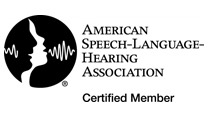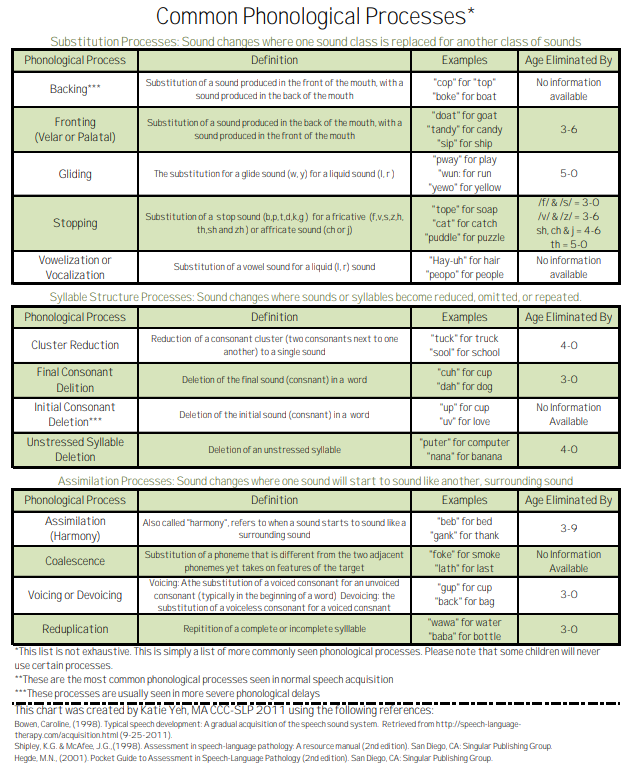|

Welcome to the Grafton School District's Speech/Language site! Please browse our resources and information.
|
A Speech/Language Pathologist is a professional, with a masters degree in Speech/Language Pathology or beyond, who evaluates, diagnoses, and provides treatment for children and adults with Speech/Language Disorders and/or Delays.
Areas of Speech/Language that are addressed include:
- Articulation: How speech sounds are produced.
- Phonology: How sounds are organized into classes and the rules/patterns that govern production.
- Receptive Language: How we comprehend language and language concepts in a variety of areas: semantics (vocabulary), syntax (grammar), pragmatics (social skills), and morphology (word order). Listening and Auditory Processing (how language is processed auditorily) is also included in Receptive Language (example: following multi-step directions).
- Expressive Language: How we use language to express ideas, feelings, and needs in a variety of areas: semantics (vocabulary), syntax (grammar), pragmatics (social skills), and morphology (word order).
- Fluency: How fluently, or smoothly, we speak.
- Voice: How we use our voice and maintain a healthy vocal hygiene program.

For additional information, visit the American Speech/Language/Hearing Association (ASHA).

Language Developmental Milestones (click link)
Speech Sound Development (click link)
In the school setting, SLP's are responsible for performing a variety of tasks: evaluation and assessment, treatment (if student is eligible), teacher/parent consult, screenings (quick, informal assessments when parents/teachers present concerns), statements of progress, conferences, occasional hearing screenings, and yearly IEP (Individualized Education Plan) meetings. The purpose of an IEP meeting is to determine:
- the strengths and deficits of the child,
- proper placement in programs,
- modifications necessary for academic and social success,
- statements regarding present level of performance,
- goals, and
- amount and locations of servicing to be provided
_____________________________________________________________________
Additional Resources for Professionals and/or Parents:
Brown's Stages - Information (Carol Bowen)
Structural Analysis for Language Samples (Carol Bowen)
Speech Intelligibility Rating (Carol Bowen)
Oral-motor activities and exercises can be selectively used to address weak articulatory muscles (the muscles in the mouth and face necessary for speech). Exercises may be appropriate for increasing strength and coordination; however, this component of therapy is not appropriate for children who do not demonstrate weakness.. Possible benefits of Oral-Motor exercises for children demonstrating weak oral musculature may include: better speech production (due to decreased excessive saliva) and increased feeding/swallowing skills. Oral-Motor exercises are not appropriate for every child or every situation.

Some Fun Activities for Home:
Blowing Bubbles: use a variety of wands
Blowing Puffs of cotton or paper-balls across a table, with or without a straw
Using various straws (curly, regular, thin, wide, etc) for liquids instead of a cup or sippy cup
Chewy foods: gummy worms, licorice, gummy savers, swedish fish, etc.
Horns (party horns), whistles, flutes, and other fun 'tools'
Addtional Resources:
TalkTools Products
PediaStaff on Pinterest (Ideas for Oral-Motor)
Phonological Disorder: Patterns of sound errors, known as Phonological Processes (see chart below for a list of common Phonological Processes). Processes are deviations from the rules governing how sounds fit together to make words.

Articulation Disorder: Difficulty producing select sounds due to manner or placement of production. In general, articulation errors consist of: omissions (ex: "-ug" for "bug"), substitutions (ex: "thee" for "see"), or distortions (ex: when the sound is distorted, it sounds somewhat similar but is not completely accurate).
Apraxia and Other Motor Speech Disorders: Difficulty with the motor planning necessary for speech production. It is considered an oral motor planning disorder, and is not related to oral motor weakness. In contrast, oral motor weakness is characterized by weak articulatory muscles (lips, tongue, cheeks).

For additional information, refer to Apraxia-Kids.org.

Articulation & Speech
Language
General Language Seasonal and Other Grafton SLP-made Materials!
- Online Speech/Language Games
- Free Language Stuff! by FreeLanguageStuff.com
- Sequencing game by Tracy Boyd
- Language worksheets from ESLPDF.com
- Boggles World ESL
- ABCYa Word Search Creator (Print it out or Play online; Great for vocabulary, articulation lists, etc)
- ABCYa Make a Snowman: great on-line activity for building vocabulary, following directions, using describing words, etc.
- ABCYa Make a Robot: great on-line activity for building vocabulary, following directions, using describing words, etc.
- ABCYa Make a Face: great on-line activity for building vocabulary, following directions, using describing words, etc.
- ABCYa Make a Pizza: great on-line activity for building vocabulary, following directions, using describing words, etc.
- ABCYa Build a House: great on-line activity for building vocabulary, following directions, using describing words, etc.
- Conversation Map (Graphic Organizer, created by Grafton S/L)
- St. Patrick's Day Speech Language Packet.pdf
- St. Pat's scavenger game.pdf
- Earth Day Vocabulary Language Packet.pdf
Preschool Language/Early Learning
Antonyms/Synonyms/Homonyms
Figurative Language/Jokes/Humor/Idioms
Grammar/Parts of Speech
Written Language/Organization/Graphic Organizers
Word Retrieval
Verbal Reasoning/Higher Level Language/Critical Thinking
iPads, Blogs, & Other Technology for Speech/Language
Voice
Fluency
Pragmatics & Social Language
Phonological Awareness
Information, Advocacy, Organizations, etc
Other Fun!
Making Your Own Materials
- PediaStaff on Pinterest: Reading and Critical Thinking
- PediaStaff on Pinterest: Inferences, Drawing Conclusions, Cause and Effect
- What will happen next? (Inferences worksheet)
- Voice Scale 1-5 (Thermometer chart, Do2Learn)
- Voice Scale 1-5 (Bugs, Frogs, Ocean, pirate themed-charts from littlekinderwarriors)
- Vocal Hygiene Program (Marshfield Clinic)
- Dysfluency (stuttering): KidsHealth
- Preschool Dysfluency: Speech Therapy Web
- Stuttering vs. Cluttering (MissouriState.edu)
- List of Fluency Strategies and Description (by fluencyfriday.org)
- Easy Speech Activities (by fluencyfriday.org)
- Some Tips (Checklist) for Home (by fluencyfriday.org)
- Teacher Questionnaire for Fluency
- Continuum of Disfluent Speech Behaviors
- Conversation Map (Graphic Organizer, created by Grafton S/L)
- Topics of Conversation Chart
- Good Communication Poster (created by Grafton S/L)
- When Your Engine Is Running Too Fast! (Poster/cue card)
- Behavior Thermometer (by do2learn.com)
- Decision Making Guide (by do2learn.com)
- Forms for Visual Schedules (by do2learn.com)
- "Social Secret"/Role Play Group Planning Sheet (by Jill Kuzma)
- Information about Social Secrets for Kids (by Jill Kuzma)
- Expected/Unexpected Definitions Visual (by Jill Kuzma)
- Expected/Unexpected Voting Strips (by Jill Kuzma)
- List of Helpful YouTube Videos for Social Skills (by Jill Kuzma)
- Meal-Time Conversation Cards
- What Would You Say? (pictures, by Grafton S/L)
- Phonological Awareness (PhonologicalAwareness.org)
- 56 Free Phonics Worksheets & Phonemic Awareness Activities
- Phonological Awareness Lessons
- ICT Games
- Starfall Reading
- ABC Teach
- Super Teacher Worksheets
- Pediastaff on Pinterest: Phonological Awareness
- Rhyming Quilt Activity (by Lakeshore Learning)
- American Speech-Language-Hearing Association
- Autism Speaks
- Autism Society
- Center for Communication, Hearing, and Deafness
- National Down Syndrome Society
- Down Syndrome Association of Wisconsin
- The Stuttering Foundation
- National Stuttering Association
- Tourette Syndrome Association
- Starfall Reading (Learn to Read with phonics program)
- Printables from Family Education
- FamilyFun.go (great ideas for activities, games, puzzles, crafts, homework charts, printables, etc)
- FunBrain.com
- Fun Fidgets Pinterest Board (for sensory, attending, prizes, and just plain fun!)
- Fun and Cool Fonts!
- My Cute Graphics!
 iPads, iPods, & Apps iPads, iPods, & Apps
Many students are able to benefit from the incorporation of iPad technology during select Speech/Language sessions, when used in conjunction with other therapy materials and with the appropriate guidance and interaction. There is an extremely wide variety of apps. Some of the best apps are even free, while others can be rather costly. Listed below are a few traditional and non-traditional apps.
FireFly for Kurzweil (Free): Mobile extension to Kurzweil.
Custom Boards: Create customized activities, schedules, and boards using built in symbols from the Smarty Symbols library with the ability to add your own photos.
Go Talk NOW (free version): Create customized communication boards. Able to import photos, take photos with iPad camera, add text, add background, add voice, and you can choose between the number of 'buttons'. A 'full' version is also available.
Dragon Dictation: (Free) Provides Voice-to-Text with the ability to export notes via email, etc.
QuickVoice: (Free edition) Create voice notes, can be exported via email, etc.
DocScan HD: (Free) Scan documents with the ability to crop, edit, draw, and export/send via email.
Proloquo To Go: A full-featured augmentative and alternative communication solution for people who have difficulty speaking. Provides text-to-speech.
Pictello: Create talking photo albums and photo books.
Articulation Station: Offers a comprehensive approach to articulation practice. Purchase individual sounds, or purchase the professional edition (with all sounds included).
Toca Boca Apps: Toca Boca develops interesting, fun, and novel apps that are especially useful for language development and social communication.
Grasshopper Apps: A great collection of apps that address a very wide range of skills, such as: vocabulary, concepts, early problem solving, early reading, counting, matching, etc.
Smarty Ears Apps: A developer of a large series of apps, with continual production of new apps, that address various skill areas within Speech/Language.
Mobile Education Tools: An app developer who provides a series of apps designed to increase language skills.
Catalyst HD: (Free) App for collecting, managing, and using data for behavior/skill tracking.
Model Me Going Places 2: Visual teaching tool. Photo slideshows of children modeling appropriate behavior (social stories) in various community locations.
Zanny Born to Run: App/story about a boy who has difficulty staying 'still'.
Now What: (Free) Developed for students/children who have difficulty with transitions. Create task lists/schedules.
Dusty D. Dawg Has Feelings Too: (Free) Story about a feelings and emotions.
Cookie Doodle (and other Doodle apps): Follow recipes and create cookies. A great app for following directions, taking turns, sequencing, and retelling events.
Speech/Language Blogs, Wikis, etc.
PediaStaff on Pinterest (Great Materials!)
If I Only Had Superpowers Blog
Play on Words Blog
Pathologically Speaking Blog
Speech Techie Blog
Mommy Speech Therapy Blog
PediaStaff on Pinterest: List of Therapist Blogs
jenny-slp.blogspot.com (Grafton SLP; apps and activities)
Other Tablet Devices
iPads are not the only device that can be of benefit in education with students with or without special education needs.
Samsung Galaxy Tab
Kindle Fire
AAC Resources and Products: Switches, Communication Devices, etc
SWAY: Switch You-Tube Access
AbleNet
Adaptive Switch Labs
Don Johnston
Intellitools
Laureate Learning
R.J. Cooper
AT Lending in Wisconsin (Need a device? Check here!)
Wisconsin AT 4 All
Other Assistive Technology
Kurzweil 3000: A software program that allows printed material to be scanned into the computer (document, book, newspaper, etc.) Sentences and words are highlighted as the computer reads the text aloud. Text can also be edited. Ability to use a split screen for note taking, access to graphic organizers, etc.
Web 2.0 for Educators Pinterest Board
IEP's and AAC
AAC Checklist
|
-
- Callaway, Jennifer
- Speech Language Pathologist
- 262 376-5472
-
Email
-
Profile
-
- Chopp, Michelle
- Speech Language Pathologist
- 262 376-5864
-
Email
-
Profile
-
- Grossmeyer, Jennifer
- Speech Language Pathologist
- 262 376-5780
-
Email
-
Profile
-
- Paszkowski, Melissa
- Speech Language Pathologist
- 262 376-5471
-
Email
-
Profile
-
- Seybold, Julie
- Speech Language Pathologist
- 262 376-5474
-
Email
-
Profile
|
|
|






